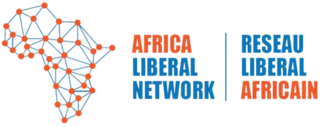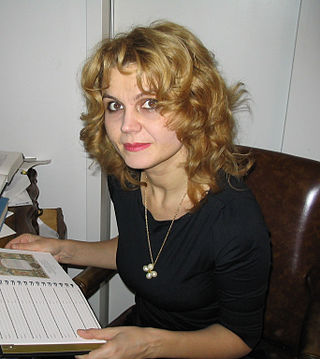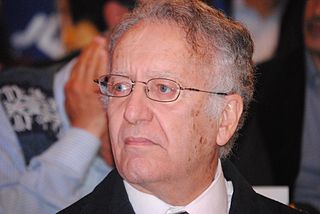
Cyprien Ntaryamira was a Burundian politician who served as President of Burundi from 5 February 1994 until his death two months later. A Hutu born in Burundi, Ntaryamira studied there before fleeing to Rwanda to avoid ethnic violence and complete his education. Active in a Burundian student movement, he cofounded the socialist Burundi Workers' Party and earned an agricultural degree. In 1983 he returned to Burundi and worked agricultural jobs, though he was briefly detained as a political prisoner. In 1986 he cofounded the Front for Democracy in Burundi (FRODEBU), and in 1993 FRODEBU won Burundi's general elections. He subsequently became the Minister of Agriculture and Animal Husbandry on 10 July, but in October Tutsi soldiers killed the president and other top officials in an attempted coup.
The Charter of Human Rights and Freedoms, also known as the "Quebec Charter", is a statutory bill of rights and human rights code passed by the National Assembly of Quebec on June 27, 1975. It received Royal Assent from Lieutenant Governor Hugues Lapointe, coming into effect on June 28, 1976. Introduced by the Liberal government of Robert Bourassa, the Charter followed extensive preparatory work that began under the Union Nationale government of Daniel Johnson.

Sylvie Kinigi is a Burundian politician and economist who served as prime minister of Burundi from 10 July 1993 to 7 February 1994, and acting president from November 1993 to 5 February 1994, making her the second African woman to serve as a president.

The University of Burundi is a public university located in Bujumbura, Burundi. Founded in 1964, it comprises eight faculties and five institutes and has a student enrollment of approximately 13,000. It is based in three campuses in Bujumbura and a fourth in Gitega. It took its current name in 1977 and is Burundi's only publicly funded university.

The Africa Liberal Network is an organization composed of 47 political parties from 29 countries in Africa. It is an associated organisation of Liberal International, the political family to which liberal democratic parties belong. The ALN serves to promote liberal objectives and principles throughout the continent.

Lesbian, gay, bisexual, transgender (LGBT) persons in Burundi face legal challenges not experienced by non-LGBT citizens. While never criminalized before 2009, today Burundi criminalises same-sex sexual activity by both men and women, with a penalty up to two years in prison and a fine. LGBT persons are regularly prosecuted by the government and additionally face stigmatisation among the broader population.

The following outline is provided as an overview of and topical guide to Burundi:

Iulia Antoanella Motoc is a Romanian judge and international law expert, currently a Judge at the European Court of Human Rights and a professor at the University of Bucharest. Before beginning her service at the Court, she served as a Judge at the Constitutional Court of Romania. Motoc was UN Special Rapporteur for the Democratic Republic of the Congo and she chaired a number of international experts bodies and was Vice-President of the UN Human Rights Committee. On 1 October 2013, the Parliamentary Assembly of the Council of Europe elected Motoc a Judge of the European Court of Human Rights with respect to Romania. She received an absolute majority of votes cast by parliamentarians. Her nine-year term of office began on 18 December 2013. In August 2021, she was elected as a member of the Institut de Droit International. On 28 March 2023, following a selection process, she was chosen by the Romanian Government to be Romania's candidate for the post of Judge at the International Criminal Court.

Burundi, officially the Republic of Burundi, is a landlocked country in the Great Rift Valley at the junction between the African Great Lakes region and East Africa. It is bordered by Rwanda to the north, Tanzania to the east and southeast, and the Democratic Republic of the Congo to the west; Lake Tanganyika lies along its southwestern border. The capital cities are Gitega and Bujumbura, the latter being the country's largest city.

Justice Jean-Paul Beraudo is a lawyer, academic and author of legal works. He was Justice at the French Supreme Court and vice-chairman of the International Court of Arbitration. He lectures on International Private Law and International Trade Law at Panthéon-Sorbonne University and on Company law at Sciences-Po, Paris. The International Institute for the Unification of Private Law (UNIDROIT) appointed him correspondent for France and a member of the scientific committee.
Alain Pellet is a French lawyer who teaches international law and international economic law at the Université de Paris Ouest - Nanterre La Défense. He was director of the university's Centre de Droit International (CEDIN) between 1991 and 2001. He is the author of numerous books.

Yadh Ben Achour is a Tunisian lawyer, expert on public law and Islamic political theory. President of the Higher Political Reform Commission of Tunisia, he is then member of the United Nations Human Rights Committee.

Burundian nationality law is regulated by the Constitution of Burundi, as amended; the Nationality Code of Burundi, and its revisions; and various international agreements to which the country is a signatory. These laws determine who is, or is eligible to be, a national of Burundi. The legal means to acquire nationality, formal legal membership in a nation, differ from the domestic relationship of rights and obligations between a national and the nation, known as citizenship. Burundian nationality is typically obtained under the principle of jus sanguinis, i.e. by birth in Burundi or abroad to parents with Burundian nationality. It can be granted to persons with an affiliation to the country, or to a permanent resident who has lived in the country for a given period of time through naturalization.

Sidiki Kaba, is a Senegalese politician currently serving in the fourth Sall government.

On 25 April 2015, the ruling political party in Burundi, the National Council for the Defense of Democracy – Forces for the Defense of Democracy (CNDD-FDD), announced that the incumbent President of Burundi, Pierre Nkurunziza, would run for a third term in the 2015 presidential election. The announcement sparked protests by those opposed to Nkurunziza seeking a third term in office.

The Judiciary of Burundi is the branch of the Government of the Republic of Burundi which interprets and applies the laws of Burundi to ensure impartial justice under law and to provide a mechanism for dispute resolution. The independence of the judiciary is guaranteed by the constitution.
The Constitutional Court is the supreme authority on Burundi's constitutional law. The Constitutional Court deals with the interpretation of the Constitution of 2005 and is considered the country's second highest court. In conjunction with the Burundian Supreme Court, the Constitutional Court can sit en banc as a High Court of Justice with special prerogatives, such as the power to try an incumbent president. It sits at Bujumbura and its incumbent president is Charles Ndagijimana.

Marcel Antoine Lihau or Ebua Libana la Molengo Lihau was a Congolese jurist, law professor and politician who served as the inaugural First President of the Supreme Court of Justice of the Congo from 1968 until 1975, and was involved in the creation of two constitutions for the Democratic Republic of the Congo.
Filip Reyntjens is professor emeritus at University of Antwerp. His academic training is in constitutional law, but he later pivoted towards the study of politics especially of the Great Lakes region of Africa.













